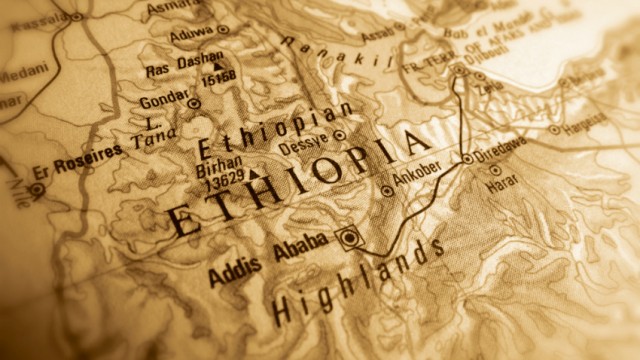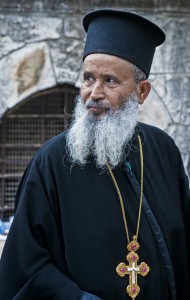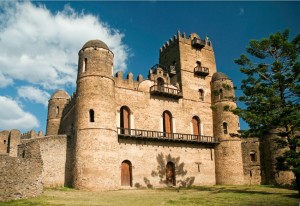Ethiopia is mysterious and unknowable to most people outside of east Africa. However, it is well worth getting acquainted with. Ethiopia’s traditions, history, customs, religions and geography are equal measures fascinating, profound and awe-inspiring.
1) It’s never been colonized by another country
The Italians tried twice (in 1896 and 1935), but Ethiopia ultimately repelled both invasions. It did take a while to get them out in the second instance, however. After Mussolini invaded in 1935 (in the second Italo-Abyssinian war), almost all the member nations of the League of Nations sided against exiled emperor Haile Selassie and approved the annexation. “Il Duce” then embarked on an ambitious plan to develop the agriculture, infrastructure and industry of the country, which came to halt when the Allies defeated the Italians in 1941, during WWII. Selassie then resumed the throne and ruled his Italianized country until 1974.
2) It was the birthplace of coffee
No disrespect meant to Italy or Starbucks, but coffee was first discovered in Ethiopia centuries ago. Legend has it that a goatherd in the Oromia highlands noticed that when his goats would eat the beans, they’d get extremely energetic. He realized the bean, when consumed, would have the same effect on humans. At some later point, enterprising Arabs saw the commercial potential in coffee, and started to cultivate it, trade it, and eventually took credit for the drink’s popularity around the world. But it all started in Ethiopia, where coffee is extremely important socially and economically. Thousands of tonnes are exported every year, and trade makes up a large portion of the country’s GDP. The strong, rich local coffee, known as buna, is drunk daily in thousands of coffeehouses and homes around Ethiopia. Elaborate rituals surrounding its preparation and ingestion are practiced widely. If you are invited to such a ceremony, it is considered a great honor and under no circumstances should be declined.
3) Christianity is the most popular religion
Unlike most other African countries, which are primarily Muslim or follow traditional tribal religions, the majority of Ethiopians are Christians. In fact, the country’s association with the religion goes all the way back to the 4th century, when Christianity was adopted as the official religion. Though it is no longer the state religion, 63% of Ethiopians are Christians. (43% are Ethiopian Orthodox, and 20% are with other denominations.) As for the remainder of the country, 34% are Muslim, and 3% practice traditional tribal faiths.
4) Thousands of Jews used to live there
Though they are no longer a presence in the country, at one time there was a sizable minority population (between 100,000-200,000) of Jews in Ethiopia. Their origins are shrouded in mystery, but what is known is that they lived in the country since pre-Christian times. However, few, if any, remain in Ethiopia today. When civil war, famine and a repressive political regime combined to threaten their existence in the 1970s and 80s, Israel offered them sanctuary. Between 1980 and 2000 over 60,000 Jews were evacuated from Ethiopia and integrated into Israeli society.
5) Most roads are smooth and safe
You may have heard that well-paved roads are rare in Africa, but that’s simply not true in Ethiopia. Thanks to enormous investment in Ethiopia’s infrastructure since 1990, the country’s roads have been vastly improved and are largely devoid of bumps, potholes, and even the bandits they were once plagued with. The Chinese have been instrumental in fixing Ethiopia’s roads — in fact they invested close to $900 million into Ethiopia’s infrastructure, including roads, in 2009. The roadwork continues every year, with more and more being built or improved. In fact, a new six-lane expressway between Addis Ababa and Adama is expected to be completed by 2014.
6) The geography is mind-blowing
Ethiopia is home to one of the hottest places on the planet, as well as one of the eeriest—the Danakil Depression. Covered in volcanoes and salt lakes, the unwelcoming landscape is also one of the most captivating you’ll ever see. Just don’t travel here alone; escorts familiar with the territory are highly recommended. The Simien mountains are also breathtaking. This massive range features multiple summits over 13,000 feet, including, Ras Dashen, Africa’s fourth-highest mountain, at 14,901 feet. The craggy peaks, deep gorges and flowing streams are home to rare wildlife like the gelada baboon and walia ibex.
7) An Ethiopian emperor inspired the Rastafarian religion
Most people think of Jamaica when they think of the Rastafari movement, because the majority of the world’s Rastas live there. But it was actually Ethiopian emperor Haile Selassie (1892-1975) who inspired the religion. The late emperor, whose birth name was Ras Tafari Makonnen, is a messianic figure to followers of the religion (for reasons too detailed to explain here), which began in Jamaica in the 1930s. Since then the faith has spread around the world, including to Ethiopia, where many Ethiopian Rastas have adopted similar wardrobes, hairstyles and customs to Jamaican Rastas. Don’t be surprised to find groups of dreadlocked Rastas along the roadside in Ethiopia, happy to give you travel tips and sell you red, green and yellow clothing items.
8) It’s got “fairytale” castles
Ethiopia is the only African country with castles truly worthy of a fairytale. The former imperial capital of Gondar is home to the castles of Fasilides, Iyasu and Mentwab, all eye- catching in their own right.
Julia Austin contributed to this article.





